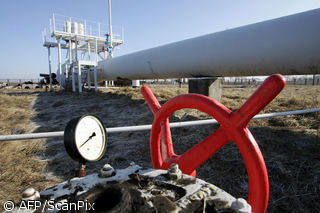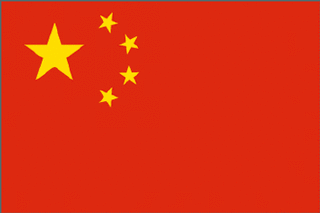Real interest rates mean great returns on the Hungarian forint
Published:
14 April 2004 y., Wednesday
Around the globe, people are looking at Hungary’s real interest rates. With consumer prices up 6.6% year-on-year in January and short-term interest rates close to 12%, there is no other emerging market that offers a better real return on your money.
Massive capital inflows confirm that there is indeed an opportunity. Hot money has pushed up the Hungarian forint to less than Ft 250 per euro. This was the level at which the forint was traded before a flow of adverse macroeconomic data and confused central bank statements drove the currency to its bottom level of over Ft 270 per euro during the second half of 2003.
Is it still worthwhile changing your humble savings into Hungarian forints to benefit from these high interest rates? The answer depends on the exchange rate at which you will convert your money back into your home currency at the end of the day.
Let us suppose you have Ђ100,000 to invest. You can invest it in T-bills from EU countries, giving you a return of around 2%. Alternatively, you change your Ђ100,000 into forints at a rate of Ft 248 and buy Hungarian T-bills for around Ft 24.8 million. This will render you a yield to maturity just below 12%, so that at the end of the year you will own around Ft 27 million.
Provided that you can change your money back into euros at the same rate, you would increase the yield on your investment sixfold compared to investing in euro T-bills! (from 2% to 12%). The problem is that you don’t know the future exchange rate. It is possible, however, to sell the whole amount on the futures market, but only at a rate of Ft 263. Hedging would cost you as much as you would gain from the interest rate differential. Alas, no free lunch.
More interesting returns are available if you’re willing to take a bet on the Hungarian forint. If you’re confident that the forint will stay firm below Ft 263 per euro until the end of December, there is no need to hedge your forint exposure. Is there any reason to be confident about this?
There are, in my opinion, two reasons that make it unlikely that the National Bank of Hungary (MNB) will let the forint depreciate again below a level of around Ft 263 per euro. The first reason is obvious, the second reason more complex in nature.
Šaltinis:
bbj.hu
Copying, publishing, announcing any information from the News.lt portal without written permission of News.lt editorial office is prohibited.
The most popular articles
 The European Commission has approved, under EC Treaty state aid rules, an amendment to a Lithuanian scheme allowing aid to be granted of up to €500 000 per company, initially approved on 8 June 2009.
more »
The European Commission has approved, under EC Treaty state aid rules, an amendment to a Lithuanian scheme allowing aid to be granted of up to €500 000 per company, initially approved on 8 June 2009.
more »
 As agreed by the President of the European Commission and the President of the Russian Federation during the last EU-Russia Summit in Khabarovsk, the EU and Russia have strengthened the current dispositions under the EU-Russia Energy Dialogue to prevent and manage potential energy crises, with an enhanced Early Warning Mechanism.
more »
As agreed by the President of the European Commission and the President of the Russian Federation during the last EU-Russia Summit in Khabarovsk, the EU and Russia have strengthened the current dispositions under the EU-Russia Energy Dialogue to prevent and manage potential energy crises, with an enhanced Early Warning Mechanism.
more »
 The European Union has today presented to the World Trade Organization the trade facilitation projects it has financed between 2006 and 2008.
more »
The European Union has today presented to the World Trade Organization the trade facilitation projects it has financed between 2006 and 2008.
more »
 The European Commission has authorised, under the EC Treaty’s rules on state aid, a planned state guarantee by Romania to enable Ford Romania SA to access a loan from the European Investment Bank (EIB).
more »
The European Commission has authorised, under the EC Treaty’s rules on state aid, a planned state guarantee by Romania to enable Ford Romania SA to access a loan from the European Investment Bank (EIB).
more »
 The economic crisis has left many countries with budget deficits well over the 3% limit. The commission is proposing deadlines for reducing the gaps.
more »
The economic crisis has left many countries with budget deficits well over the 3% limit. The commission is proposing deadlines for reducing the gaps.
more »
 Statistics Lithuania informs that in October 2009, against September, prices for consumer goods and services went down by 0.4 per cent.
more »
Statistics Lithuania informs that in October 2009, against September, prices for consumer goods and services went down by 0.4 per cent.
more »
 Lithuania’s Vice-Minister of Foreign Affairs Šarūnas Adomavičius took part in bilateral political consultations with representatives from foreign affairs, commerce and transport ministries of the People’s Republic of China.
more »
Lithuania’s Vice-Minister of Foreign Affairs Šarūnas Adomavičius took part in bilateral political consultations with representatives from foreign affairs, commerce and transport ministries of the People’s Republic of China.
more »
 Under the budgetary surveillance powers conferred by the EU Treaty, the European Commission today proposed to the Council to set 2013 as the deadline for the correction of the budget deficits in Austria, the Czech Republic, Germany, Slovakia, Slovenia, the Netherlands and Portugal.
more »
Under the budgetary surveillance powers conferred by the EU Treaty, the European Commission today proposed to the Council to set 2013 as the deadline for the correction of the budget deficits in Austria, the Czech Republic, Germany, Slovakia, Slovenia, the Netherlands and Portugal.
more »
 A joint partnership between the World Bank, the Moldovan Ministry of Agriculture and Food Industry and the Ministry of Environment was launched in Moldova’s capital in the late days of October.
more »
A joint partnership between the World Bank, the Moldovan Ministry of Agriculture and Food Industry and the Ministry of Environment was launched in Moldova’s capital in the late days of October.
more »
 World Bank Group President Robert B. Zoellick today joins senior officials from the Government of Singapore to launch a new global urban strategy that will guide Bank advisory services and financing in the sector over the next decade.
more »
World Bank Group President Robert B. Zoellick today joins senior officials from the Government of Singapore to launch a new global urban strategy that will guide Bank advisory services and financing in the sector over the next decade.
more »